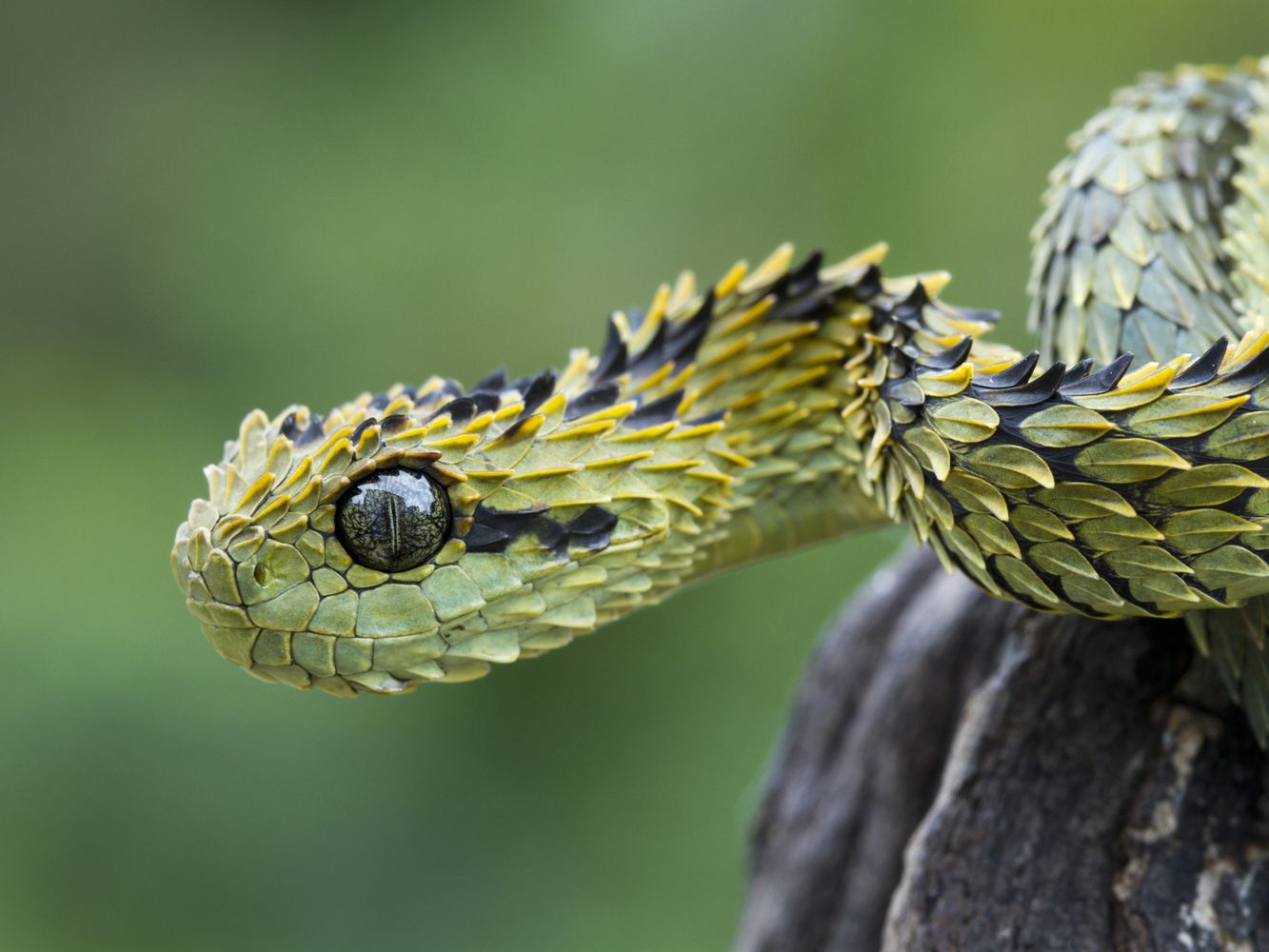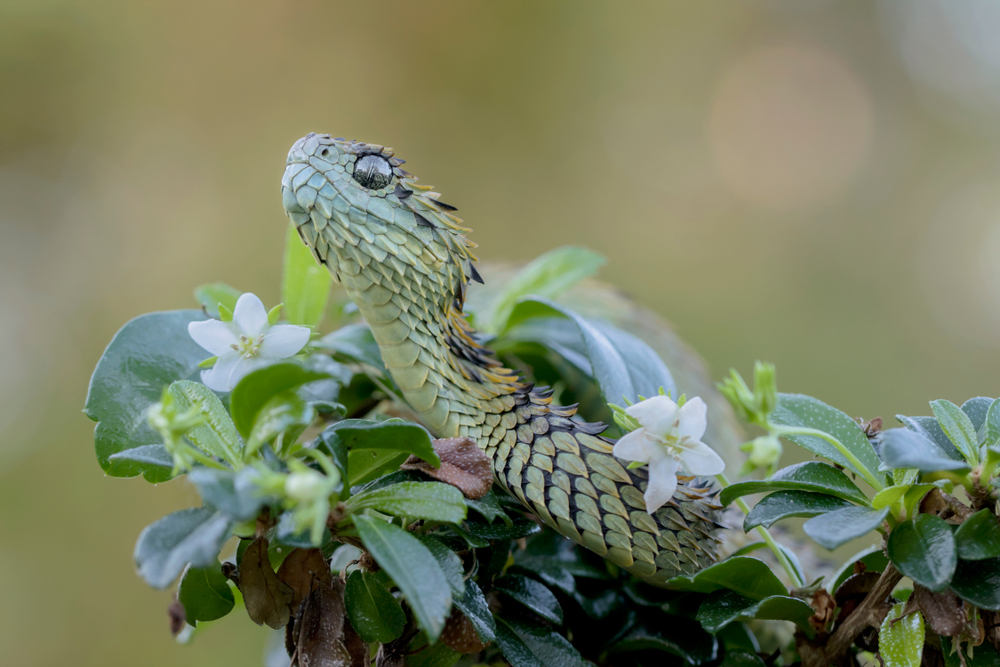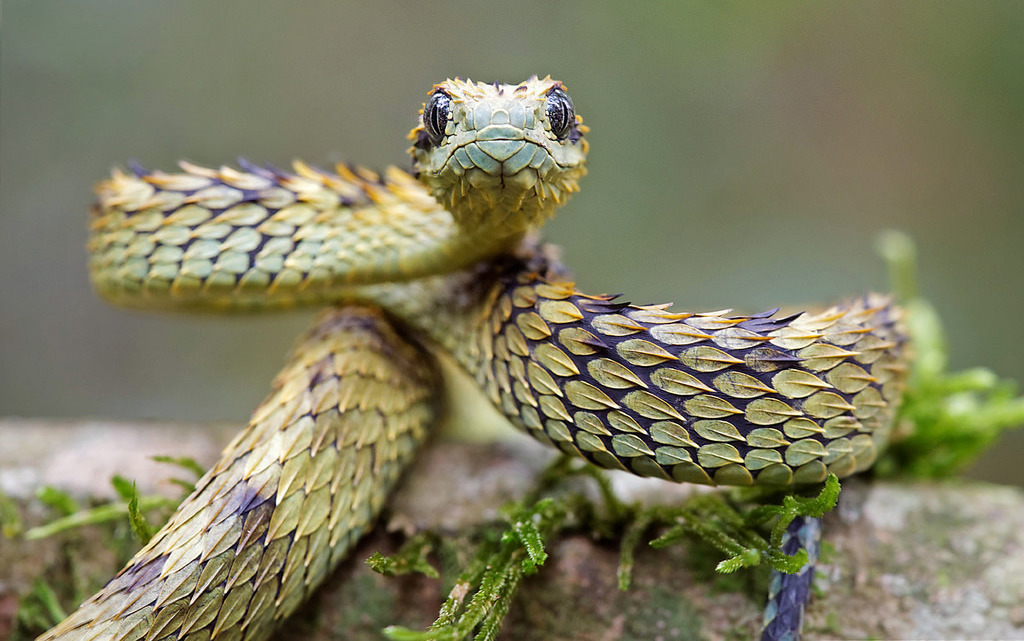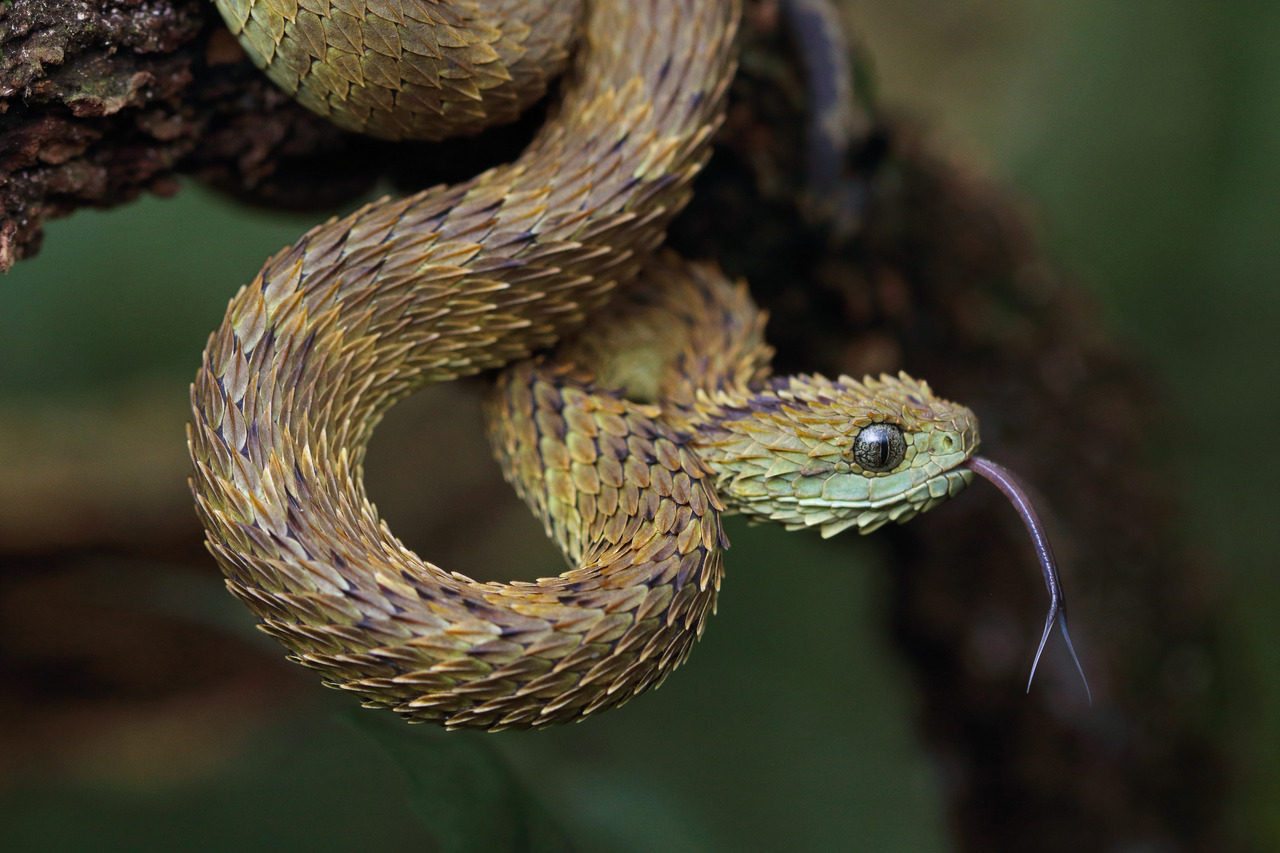





 bush vipers are mainly arboreal and prefer tropical rainforests in West and Central Africa. They are typically found far from human settlements |
 African bush vipers are carnivorous, and primarily eat small rodents. They may also eat birds, frogs, and small reptiles when available. |

|
This venomous, pretty, rough-scaled, arboreal viper is also known as the common bush viper and the green bush viper. Since the species is remarkably polymorphic, occurring also in reds, oranges, grays, yellows, black, blues, olive, and various shades of brown, as well as green, all with or without darker or lighter crossbands, the name of green bush viper is notably inaccurate.
Bush viper venom is hemotoxic, which means it can destroy red blood cells and disrupt blood clotting and potentially cause organ or tissue damage. There is currently no antivenin for bush vipers, but there are some therapies that have been successful in treating the bites.
African bush vipers are ambush predators, and commonly strike their prey while hanging upside down from a tree limb. There is no antivenom for this species of snake Venom from an African bush viper is primarily hemotoxic and potentially life threatening. Existing, commercialy available antivenoms may not neutralize venom of this genus.